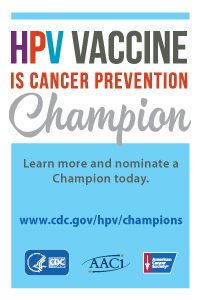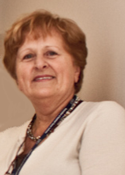On February 11, AACI hosted an educational briefing on Capitol Hill, with support from the American Association for Cancer Research (AACR) and in cooperation with the House Cancer Caucus. The briefing focused on educating new legislators, their staff, and Hill veterans about the importance of the nation’s cancer centers. The panelists were: AACI President George J. Weiner, MD, director, Holden Comprehensive Cancer Center; Roy A. Jensen, MD, director, The University of Kansas Cancer Center; Candace S. Johnson, PhD, president and CEO and director, Roswell Park Cancer Institute; and Averl Anderson, a patient advocate from Buffalo, New York.

AACI Capitol Hill cancer research briefing: (L-R) Cancer center directors George Weiner, Roy Jensen and Candace Johnson, with patient advocate Averl Anderson.
As the panel’s moderator, Dr. Weiner, who also serves as vice chair of AACR’s Science Policy and Government Affairs committee, highlighted the role that cancer centers play in conducting and supporting multidisciplinary cancer research; training cancer physicians and scientists; providing state-of-the-art care and disseminating information about cancer detection, diagnosis, treatment, prevention, control, palliative care, and survivorship.
Despite significant progress in combating the disease, the cancer community still faces difficult challenges, Dr. Weiner said. For example, many new ideas are going untested because of shrinking resources–the NIH budget has dropped 24 percent ($6.5 billion) since 2003, when accounting for inflation in the cost of biomedical research, and NCI’s budget has been cut 26.4 percent ($1.2 billion).
Dr. Johnson recalled the many opportunities that were available to her when she was a young scientist, but she is now concerned that stagnant funding will drive today’s budding scientists out of the field, thus impeding research progress.
“If we didn’t have these [cancer] centers it would be a loss to patients and everyone in the country,” Dr. Johnson said.
Dr. Jensen, whose center received NCI designation in 2012, also highlighted cancer centers’ role in driving research, stressing the need for predictable federal funding in order for cancer centers to make faster progress.
Ms. Anderson discussed her volunteer work with the Roswell Park Buffalo/Niagara Witness Project, a program targeting underserved women in Buffalo. In 2008 the Witness Project set a goal to recruit 200 women to acquire mammograms. Ms. Anderson was the 200th volunteer and the only one to be diagnosed with breast cancer. She said that the mammogram saved her life; she also credited the care that she received as part of a clinical trial at Roswell Park Cancer Institute.
Ms. Anderson urged that myths about cancer prevention and detection and the history of cancer be dispelled. In some communities, especially minority communities, cancer diagnoses are not discussed among families and friends, she said, noting that in some homes it is taboo for children to hear about aunts, uncles and parents with cancer.
“Cancer is growing. We need to grow with it and funding must grow with it,” she said.
– Jennifer W. Pegher, AACI Government Relations Manager
 AACI has partnered with the Centers for Disease Control and Prevention’s (CDC) National Center for Immunization and Respiratory Diseases (NCIRD) and the American Cancer Society (ACS) to recognize leaders in health care who are going above and beyond to promote or foster HPV vaccination among adolescents in their communities.
AACI has partnered with the Centers for Disease Control and Prevention’s (CDC) National Center for Immunization and Respiratory Diseases (NCIRD) and the American Cancer Society (ACS) to recognize leaders in health care who are going above and beyond to promote or foster HPV vaccination among adolescents in their communities.







